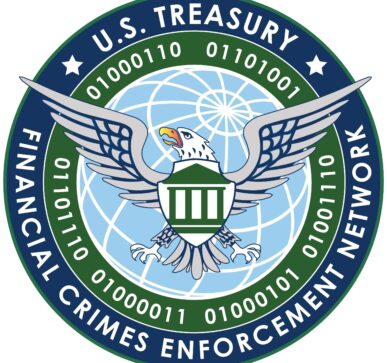During the FIBA’s (Financial and International Business Association’s) annual anti-money laundering conference held from March 18, 2024, to March 21, 2024 in Miami, Florida, Director Gacki from FinCEN discussed regulatory expectations and best practices to prevent financial crimes in a fireside chat. Enhancing transparency in the U.S. financial system continues to be a top priority for FinCEN.
The initiatives undertaken by FinCEN; which will assist FinCEN, and its law enforcement partners root out bad actors taking advantage of the U.S. financial system discussed by Director Gacki include:
- The Notice of Proposed Rulemaking (NPRM) that would require certain investment advisers to apply AML/CFT requirements pursuant to the Bank Secrecy Act, including implementing risk-based AML/CFT programs, reporting suspicious activity to FinCEN, and fulfilling recordkeeping requirements. FinCEN’s view is that investment advisers are at risk of abuse by money launderers, corrupt officials, tax evaders and other bad actors due to the fact that investment advisers are “generally” not subject to comprehensive anti-money laundering and countering the financing of terrorism (AML/CFT) measures. As a result, the illicit actors are likely to “shop around” for investment advisers that do not need to inquire about the illicit actor’s source of wealth and act as entry points to the U.S. securities, real estate, and other assets markets.
- The Notice of Proposed Rulemaking (NPRM) to combat and deter money laundering in the U.S. residential real estate sector by increasing transparency. FinCEN is seeking to require certain professionals involved in the closing or settlement of residential real estate transfers to report information to FinCEN about certain non-financed sales and transfers and keep records. The reporting requirement is tailored in nature as it is designed to capture a particular class of activity that Treasury deems high-risk and that warrants reporting on a transaction-specific basis. The new reporting requirement for non-financed residential real estate transactions would require certain persons involved in residential real estate closings and settlements to file, and to maintain a record of, a streamlined version of a Suspicious Activity Report (SAR), referred to as a “Real Estate Report.”
Director Gacki also addressed the support that financial institutions provide to law enforcement through suspicious activity reporting and information sharing through Section 314(b) of the USA PATRIOT Act. “FinCEN strongly encourages all U.S. financial institutions to register for the 314(b) program and look for opportunities to form associations to engage in voluntary information sharing. FinCEN encourages U.S. financial institutions to continue to use, and potentially expand, their existing processes to collect and share information with foreign financial institutions in furtherance of investigations that involve cross-border activity”. Of note, back in 2020, FinCEN provided a welcomed clarification stating that Financial Institutions can now share information in reliance on the Section 314(b) safe harbor relating to activities it suspects may involve money laundering or terrorist activity, even if the financial institution or association cannot identify specific proceeds of a Specified Unlawful Activity being laundered. Prior to this clarification, Section 314(b) permitted financial institutions to share information only in situations of suspected terrorism and money laundering.
Are you receiving Corporate Governance Guidance? What are your Best Practices to Prevent Financial Crimes?
Establishing and maintaining a reasonably designed BSA/AML and CFT compliance program is essential. A Financial Institution’s risk assessment process and ensuring that it is adequately resourced is critical to an effective well-designed corporate compliance program. Financial Institutions can no longer afford to underfund hiring and training in any compliance area. Make sure you have enough resources budgeted and allocated. Who is your Corporate Governance Expert? ©





